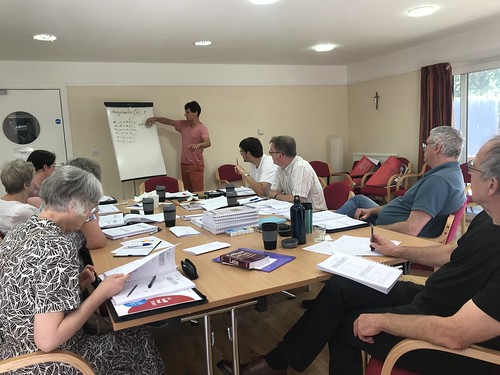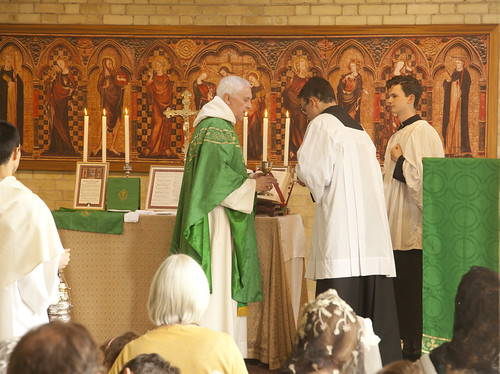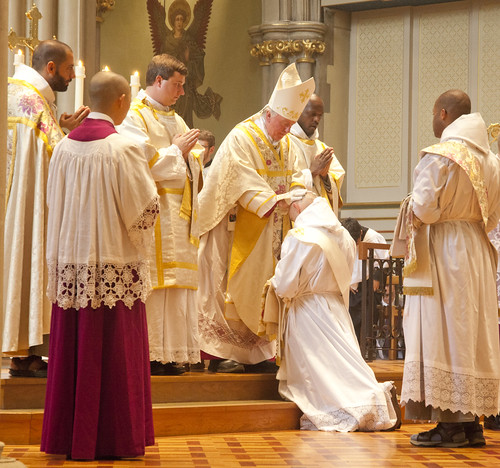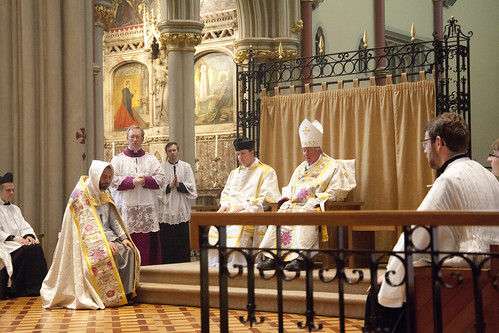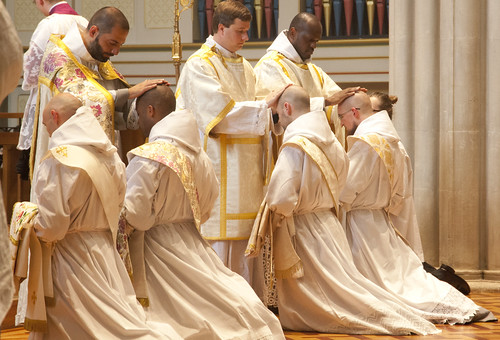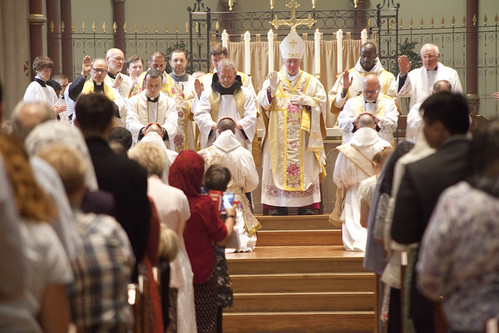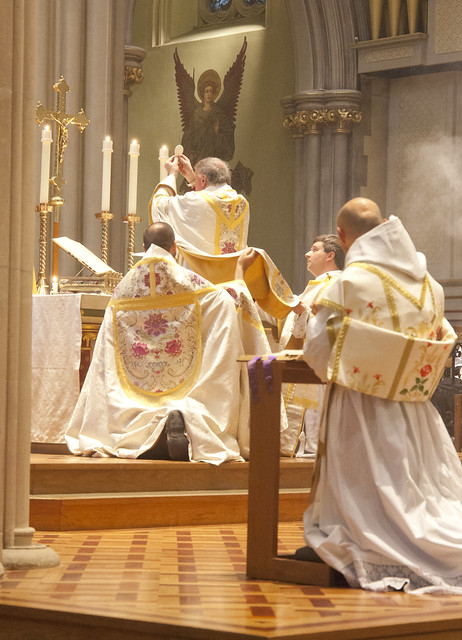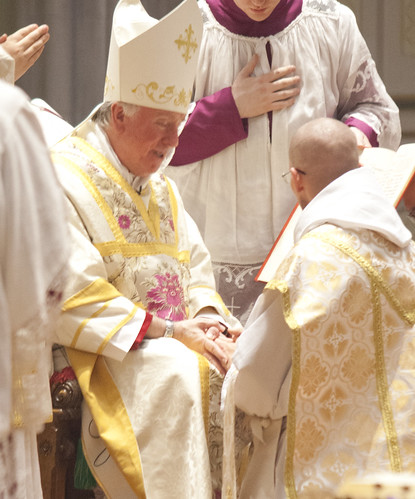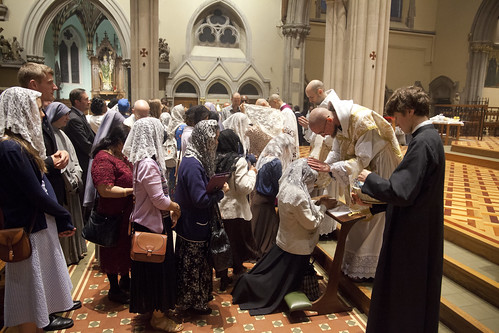Chairman's Blog
Why do people lapse? More from Stephen Bullivant
 My latest on LifeSiteNews. This post focuses on a shorter book of Prof Bullivant, which has also come out this year. One of the interesting and perhaps counter-intuitive results of the survey of lapsed Catholics he carried out for Portsmouth Diocese is that the lapsed are not all what you might call liberal ex-Catholics: they include a fair number of conservative or even traditionalist ex-Catholics. I think it might be tempting to think of the more conservative type of Catholic as the core vote who are least likely to leave, people with a higher level of committment. The truth is more complicated. People who want traditional liturgy, beautiful churches, and clear teaching, can lose heart and lapse. Indeed, 10% of respondents even agreed (or 'strongly agreed') with the statement 'I prefer the Latin Mass but there is none in my area.'
My latest on LifeSiteNews. This post focuses on a shorter book of Prof Bullivant, which has also come out this year. One of the interesting and perhaps counter-intuitive results of the survey of lapsed Catholics he carried out for Portsmouth Diocese is that the lapsed are not all what you might call liberal ex-Catholics: they include a fair number of conservative or even traditionalist ex-Catholics. I think it might be tempting to think of the more conservative type of Catholic as the core vote who are least likely to leave, people with a higher level of committment. The truth is more complicated. People who want traditional liturgy, beautiful churches, and clear teaching, can lose heart and lapse. Indeed, 10% of respondents even agreed (or 'strongly agreed') with the statement 'I prefer the Latin Mass but there is none in my area.'
You know how many lapsed Catholics there are? The massive and authoritative British Social Attitudes Survey indicates that there are 3.7 million in the UK. If anything like 10% of these, plus who knows what percentage of practicing Catholics, prefer the Latin Mass, even when most Catholics under 70 do not even know what it is like, then our bishops are clearly missing a trick in not making sure it is available.
-----------
Prof Bullivant on What Went Wrong after Vatican II
I'm going to be writing more about Prof Bullivant's new book, Mass Exodus, which examines the catastrophic decline of Catholic affiliation and practice since the Second Vatican Council, from a sociological point of view.
Here is a piece I have written for LifeSiteNews.
LMS Latin Course: book now
For details and booking see the LMS website here.
Dates: 29th July to 2nd August 2019
The Latin Mass Society’s Residential Latin Course for adults is an intensive course, taught by two experienced tutors, focusing on the Latin of the liturgy.
It is ideal for priests and seminarians wishing to improve their Latin, and all clerics and seminarians (and those about to enter seminary) enjoy a 50% discount on the course fees, which are extremely low anyway.
They are joined by lay men and women who wish to engage more closely with the ancient Latin liturgy, or do studies involving Latin.
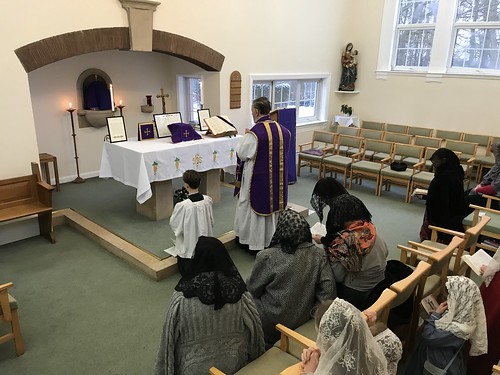 |
| Mass celebrated by Fr John Hunwicke at Boars Hill for the Guild of St Clare sewing retreat |
The Dominican Rite in Cambridge
On Sunday, a First Holy Communion took me to Cambridge Blackfriars, a place I have not visited before. The Dominican priory churches in Oxford, London, and Leicester, where I have attended Mass, are large and impressive neo-gothic buildings; for various reasons the Cambridge Blackfriars is very modest. The chapel was, I am told, originally intended as a lecture-room, but plans for a chapel elsewhere were shelved for various reasons.
Nonetheless, the chapel was packed, and a beautiful Mass was celebrated by Fr Aidan Nichols OP, and accompanied by a five-strong local schola. This Mass, at 9:15am, takes place every Sunday, either Sung or Low.
Friars ordained by Bishop Egan: photos
Last night Bishop Philip Egan ordained four members of the Franciscan community based in Gosport, in his cathedral in Portsmouth: St John's. I was there.
The community at Gosport is called the Family of Mary Immaculate and St Francis. This is an institute of diocesan right established by Bishop Egan, and the superior is Fr Serafino Lanzetta. At their parish in Gosport, which comprises St Mary's and St Columba's churches, they celebrate both Forms of the Roman Rite. The ordinations took place in the older Rite. The new priests are Fr Philomeno and Fr Rosario, who will be familiar to readers who have attended the LMS Walsingham Pilgrimage, and Fr Faustino and Fr Michele.
Support the Latin Mass Society
Is this a persecution of the Old Mass?
My latest on LifeSiteNews.
Successful book launch
Thanks to everyone who joined us at the launch for The Case for Liturgical Restoration in the St Wilfrid Hall at the London Oratory.
We were joined by Felipe Suarez, President of the Una Voce Federation (FIUV). It is him on the left in the top picture.

Buy the book here (in the UK), or from Amazon; here is the publisher's page.
Endorsements:
The Order of Malta: article in the Catholic Herald
I'm on the front cover of the Catholic Herald this weekend. My article begins:
Fra’ Giacomo Dalla Torre, the Grand Master of the Order of Malta, has informed members that henceforth all Masses celebrated in the context of Order events must be celebrated according to the Ordinary Form: that is to say, there must be no more Traditional Latin (Extraordinary Form) Masses.
This will come as a heavy blow to many of those associated with the Order in England and Wales, where it has long had celebrations in both Forms. It is one more example of an ongoing problem, however: that even as the Church’s ancient liturgy becomes more and more a normal part of Catholic life around the world, some religious orders have found it difficult to handle.
Statement of the FIUV on the Order of Malta
I neglected to post this on my blog until now. Edward Pentin also has an article about the issue here.
The FIUV notes with regret the letter, dated 10th June, from Fra’ Giacomo Dalla Torre, Grand Master of the Sovereign Military and Hospitaler Order of St John of Jerusalem, of Rhodes, and of Malta (the ‘Order of Malta’), forbidding the celebration of the Traditional Latin Mass (the Extraordinary Form) in the context of the Order’s liturgical life. Since this letter has become public, we would like to observe that it does not accurately present the provisions of Pope Benedict XVI’s Apostolic Letter, given motu proprio, Summorum Pontificum. Article 3, cited in the Grand Master’s letter, explicitly allows religious communities to have not only private but conventual celebrations of Mass in the Extraordinary Form, without reference to the Major Superior (in the case of the Order of Malta, the Grand Master or the Prelate). His permission is required only in cases where the community ‘wishes to have such celebrations frequently, habitually or permanently’. The Grand Master’s letter also neglects the right of the faithful, from which the religious and lay members of the Order of Malta are not excluded, from requesting celebrations of Mass in the Extraordinary Form (Article 4). Celebrations in the context of special occasions such as pilgrimages are explicitly anticipated (Article 5 §3). Pastors and rectors of churches are directed to accede to such requests (Article 5, §1 and §5). The Federation would like to emphasise that the Extraordinary Form is a part of the liturgical patrimony of the Church which represents ‘riches’ for the Church, which should not be neglected or excluded, and certainly not on the basis of a narrow conception of unity which excludes the variety of liturgical expressions permitted in the Church. As Pope Benedict expressed it: ‘These two expressions of the Church’s lex orandi will in no way lead to a division in the Church’s lex credendi(rule of faith); for they are two usages of the one Roman rite.’ (Summorum Pontificum, Preamble)
Feminine modesty: the third-rail issue claims another victim

My latest on LifeSiteNews.
Last week saw the deletion of another Twitter account by someone who aroused the anger of the mob. Fr. Kevin Cusick deleted his account when, after tweeting about the importance of modest attire in church, he was overwhelmed by angry responses. Actually, “angry” was not the right word. It was deranged.
Twitter’s moderators inevitably found that Fr. Cusick has breached their rules.
In explaining why women should cover their shoulders, Fr. Cusick volunteered the suggestion that it was for the benefit of men who are otherwise distracted during Mass. This fits the same pattern of thought expressed by Maryann White, a mother who wrote to a Notre Dame student paper that the leggings worn by some female students in the Notre Dame Basilica distracted her sons. White also suffered a huge social media backlash. The more substantial objection made against both Fr. Cusick and Mrs. White is also that made against the judges or police officers who occasionally make the mistake of warning women that they increase the chance of being raped by wearing practically nothing, late at night, in less salubrious city districts, while under the influence of alcohol.
Support the Latin Mass Society

